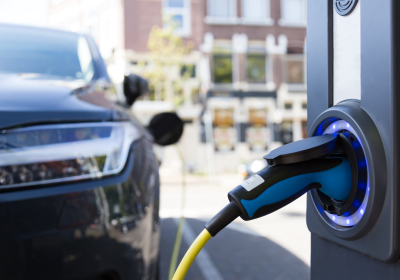Blog
Government Grants for Electric Vehicles – EVG
The increasing popularity of electric vehicles (EVs) has led governments around the world to offer incentives and grants to encourage their adoption. These grants can help offset the higher cost of EVs compared to traditional gasoline-powered cars, making them more accessible to a wider range of consumers. In this blog post, we’ll take an in-depth look at government grants for electric vehicles and how they work.
EV Gateway has worked closely with other partners in the EV sector to launch charging networks across the country. You can rely on our partnership with vehicle manufacturers to ensure that you will get access to different EV charging stations.

1. Types of Government Grants
There are several types of government grants available for electric vehicles, including:
2. Eligibility Requirements
Eligibility requirements for government grants for electric vehicles vary by country and region. In general, grants are available to individuals, businesses, and government entities that purchase or lease new EVs. Some grants are also available for used EVs, while others are limited to certain makes and models.
To qualify for a government grant for an EV, you will usually need to provide proof of purchase or lease, proof of residency or business ownership, and proof of eligibility for the grant. Some grants may also have income restrictions or require you to live in a certain area or region.
3. How to Apply
The application process for government grants for electric vehicles varies by country and region. In general, you will need to apply for the grant through a government agency or an approved third-party vendor. Some grants may require you to apply before purchasing or leasing an EV, while others may allow you to apply after the fact.
To apply for a government grant for an EV, you will usually need to provide documentation of your eligibility, such as proof of purchase or lease, proof of residency or business ownership, and proof of income if required. You may also need to provide additional documentation, such as vehicle registration or proof of insurance.
4. Benefits of Government Grants for Electric Vehicles
The benefits of government grants for electric vehicles are numerous. They can help offset the higher cost of EVs, making them more accessible to a wider range of consumers. They can also help spur the development of charging infrastructure, which is critical for the widespread adoption of EVs.
In addition to the financial benefits, there are also environmental benefits to the widespread adoption of EVs. EVs produce zero emissions, helping to reduce air pollution and mitigate the effects of climate change. By encouraging the adoption of EVs, governments can help reduce their carbon footprint and promote a more sustainable future.
5. Challenges and Limitations
While government grants for electric vehicles are an important tool for promoting their adoption, there are also challenges and limitations to their effectiveness. For example, some grants may be limited in scope, only available to certain makes and models of EVs, or subject to funding limitations.
In addition, the availability of charging infrastructure can be a barrier to the widespread adoption of EVs, even with the support of government grants. Developing a comprehensive charging infrastructure requires significant investment and coordination, and may take time to implement.
6. Conclusion
In conclusion, government grants for electric vehicles play a crucial role in promoting their adoption and supporting a more sustainable future. By offering financial incentives for the purchase and use of EVs, governments can help make them more accessible to a wider range of consumers, while also spurring the development of charging infrastructure. However, there are also challenges and limitations to the effectiveness of these grants, such as limited availability and funding, as well as the need for a comprehensive charging infrastructure. Nevertheless, government grants for electric vehicles remain an important step forward in the transition to a more sustainable transportation system. As more and more countries and regions adopt these grants, the future of electric vehicles looks brighter than ever.
© 2022 EvGateway. All rights reserved